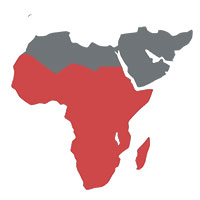Durban: What Of It?
Tim Hall | December 14, 2011.
Ever since the disaster that was Copenhagen in 2009, the United Nations Framework Convention on Climate Change (UNFCCC) has been lost. Cancun last year was widely praised simply because it was able find its feet after such a mess.
The futility associated with the UNFCCC carried over to this years meeting, COP17 in Durban, South Africa. Expectations were lower than they have ever been and in light of past experiences, the outcomes of Durban were big achievements in itself. In terms of what was required though, the process is still not functioning at its best.
The annual climate change talks were full of drama as nations, aware of their global responsibilities, fought to keep their respective interests heard. The pace of the two week event is always similar with one and a half weeks of inertia and pandering before the final days of intense negotiations where an outcome is only reached at the last possible moment, often seemingly plucked from the jaws of defeat. And with an end result that is always less than what is needed and wanted from the world.
COP17 was a political theatre encapsulating beauty and tragedy. Poetics aside, the Durban outcomes are far from inspiring, and possibly catastrophic. Expectations were at an all time low, and when only offered a choice between the bad and the ugly; delegates chose the best of what was on offer.
The UN has praised the Durban outcomes, invoking the words of Mandela in the fight against apartheid: the impossible had been made possible in South Africa; tomorrow had been saved today; and all present were cautiously optimistic at the outcomes.
So what did Durban achieve?
The first major outcome was the establishment of the Durban Platform. Essentially a roadmap to a new global treaty to be implemented in 2020, it will be the first global treaty to cover the emissions of emerging economies such as Brazil, China and India. This inclusion was a major breakthrough. Nine of the ten current fastest growing emitters will be bound to curb emissions in 2020. This did come at the expense of ambition in the short term and equity in the long term though.
Until then, as was agreed to in Durban, a second commitment period to the Kyoto Protocol will be in force from 2013. When it ends was not decided, though the European Union and a number of developing nations are pushing for 2017.
The third outcome of Durban was the establishment of the Green Climate Fund which has promised $100billion by 2020 to finance adaptation and mitigation in the developing world. Whilst a good idea, given the lack of specifics as to how the money will be sourced, it is currently nothing more than an empty shell.
Durban largely made progress in the areas that it was expected to deal with. And therein lays the problem with Durban: with expectations lowered, the longest UNFCCC meeting ever has only achieved an outcome which is patchy in design and pitiful in ambition.
Vital aspects of the second commitment period of Kyoto and the future global treaty have yet to be worked out. The breakthrough in negotiations came simply with Kyoto’s continuation after fears that all hope was lost following Canada, Japan and Russia’s withdrawal.
Ambition continues to remain at pathetic levels and the extension of Kyoto actually locks in low targets and likely emission increases over the next decade. The Kyoto Protocol remains a shadow of what it once was, and exists simply to keep alive carbon markets and investments.
The long term goal of a “protocol, a legal instrument or an agreed outcome with legal force” is a positive step, reestablishing international law as the framework within which to act on climate change. It also notes that current targets may be inadequate; giving a glimmer of hope that ambition may be forced to rise and match the science.
The true breakthroughs at Durban were not in the policy texts, but in the bizarre last minute huddles. COP17 marked a significant symbolic shift in the politics of climate change. The Least Developed Countries (LDCs) broke away from the BASIC (Brazil, South Africa, India and China) bloc of emerging economies, and instead teamed up with the EU in an odd coalition. In the final moments of 60 near continuous hours of negotiations that concluded at 6am on Sunday, it looked as if the UNFCCC had caught itself up with irreconcilable differences. No breakthrough, even after negotiations went into over time, would have been unprecedented. Delegates showed obvious signs of fatigue with many negotiating with their luggage on standby ready to fly out immediately once the final gavel had struck.
No one wanted to leave Durban a failure instead opting to settle for the best of the mediocre offerings. Durban will just be one of many events that will render this decade the one lacking on climate action. The decade of miss opportunities began in Copenhagen and was formalised here in Durban.There have been positive steps forward, particularly in strengthening the international fight on climate change. Patchy and pitiful outcomes will not solve anything. Two COPs on, the UN needs to move on from Copenhagen and set its sights higher again.
Durban was a step, but not the solution.













comment